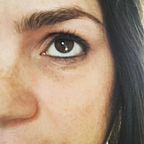National Adoption Month
November 1 marks the beginning of National Adoption Month. The White House proclamation states:
It is a beautiful sentiment. An ideal worthy of pursuit. Especially that last phrase: …and let us continue working to ensure that every child has a loving family to call their own. But to which children does this proclamation refer? Those lingering in the child welfare system? Those relinquished voluntarily in infancy? Those adopted internationally? Those stolen and subsequently lost by the U. S. government in the ongoing border fiasco? What about trafficked children, never orphaned at all?
Perhaps a better question to ponder is how the current system perpetuates dangerous, unhealthy, and abusive tactics such as ongoing racist policy development, human trafficking, relinquishment without informed consent, and a lack of centralized oversight of a system designed to make money off the backs of birth parents, their children, and the people desperate for a child to love.
This month I will focus on the $20.5 billion dollar adoption and child welfare industrial complex, its trappings, the ways in which it can be harmful, and most importantly — explore the ways in which adoption can be made more affordable, equitable, and healthy for all involved. After all, most people who choose to adopt, like my parents, do so legally and wholly committed to providing a loving home.
To begin the conversation, let’s take a look at the average cost of adoption in the United States. Private adoptions, those negotiated by an attorney, can cost anywhere from $15,000 to $40,000. This usually covers medical expenses for the birth mother and the child, legal fees, home visits, and court costs. In 1975 my parents paid private adoption costs for me totaling $1527.74. In 2022 dollars that amount is equal to $8,424.27, a cumulative inflation hike of 451.69%, and nowhere near the cost of private adoption today.
Similarly, agency adoption costs typically range from $20,000 to $45,000, but because adoption is regulated at the state level, regulations vary as do costs. This is because adoption agencies, attorneys, and other adoption workers set fees at their discretion, leaving some hopeful parents in the lurch, paying unexpected fees to complete the adoption process.
The most affordable option for families is to adopt from the over 120,000 children waiting to be adopted from the U. S. child welfare system. In these cases, the federal government subsidizes up to $2,000 of adoption costs per child, and some states provide a monthly stipend until the child reaches the age of majority. In Alabama, families who adopt from the child welfare system receive a one-time payment of $1,000 per child to offset adoption costs. In New York, parents receive $2,000 per child, and in California, the stipend is a mere $400 per child.
Below is the letter my parents received six months after I was born. The final payment. It must have been such a relief after so many months to be done with the process. I think about how stressful that must have been for them even with the necessary financial resources.
The adoption and child welfare industrial complex — and let’s be honest, it is exactly that, a money making machine — is in need of a massive overhaul, and we better get busy because there will likely be an increase of adoptable infants available stateside with the overturn of Roe. We cannot let adoption become an even more inequitable system than it already is, one in which newborns go to the highest bidder.
And before you celebrate the possibility of an influx of adoptable newborns, check out this article by my friend and fellow adoptee, Mindy Stern. The title says it all: Adoption Is Not An Alternative To Abortion. It never has been. It never will be. If that were the case, there wouldn’t be 120,000 children languishing in the child welfare system.
Safe and supportive homes. Loving families. That is what the proclamation says. If that is truly the hope and desire of well meaning Americans, if it really is all about the children, there is much work left undone.
